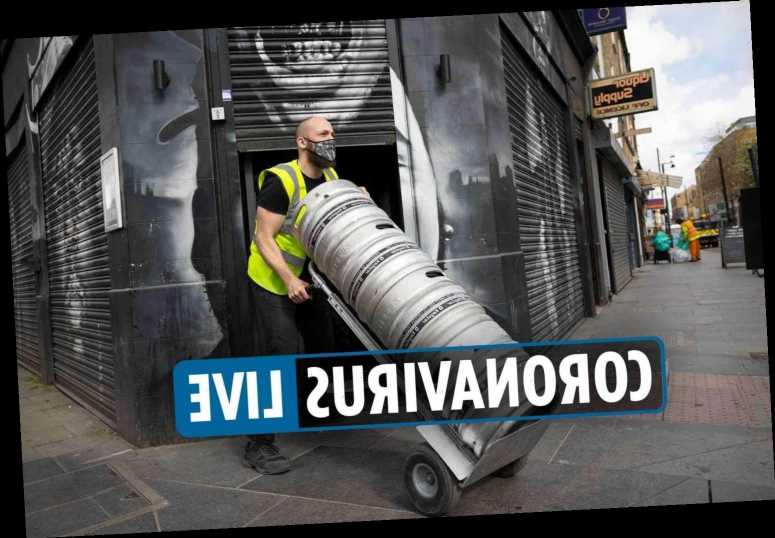We've pretty much all been there. You meet someone new, chemistry's off the charts, and hooking up in a spontaneous way feels almost inevitable. In an attempt to make the most of the moment while also practicing safer sex, you think you'll just stick to oral sex for now as it seems like the less risky alternative to full-on intercourse. But the fact is that many sexually transmitted infections (STIs) can be passed through oral sex.
There is a misconception that oral sex is safer sex, and that is true when it comes to HIV transmission, but in fact, various other infections can be transmitted through oral sex, points out Ina Park, M.D., associate professor at the UCSF School of Medicine and author of Strange Bedfellows, a new book about sexual health and STIs.
Given that one in five people have a sexually transmitted infection (STI), according to the latest data from the Centers for Disease Control and Prevention (CDC), anyone who's sexually active would benefit from knowing the facts. Here, the STIs that can be passed via oral sex as well as the safe sex practices experts recommend.
Here Are the STIs That Can Be Transmitted Orally
When it comes to STI transmission, oral sex really is no different than vaginal sex or anal sex, because any body part with mucous membranes — meaning the mouth, vagina, or the rectum — can harbor an infection, points out Dr. Park.
Although the risk of transmitting HIV by giving or receiving oral sex is low, the risk goes up if someone has sores or cuts in their mouth, so it's a good idea to avoid oral sex in those situations, notes Dr. Park.
The following common STIs can be passed when either receiving or giving oral sex:
HSV (herpes simplex virus)
HSV can reside on the lips, mouth, throat, genital area, anus, rectum, or buttocks, and there are two types: HSV1 and HSV2. HSV1 is usually transmitted by oral-to-oral contact to cause oral herpes, which often manifests as common cold sores, but it can also cause genital herpes. HSV2 is mainly transmitted during intercourse.
HSV1 is incredibly common, as according to the latest data, almost half of Americans between the ages of 14-49 have the virus, and HSV2 affects nearly 12% of Americans. And the CDC estimates that 87.4% of 14-49 year olds infected with HSV2 have never received a clinical diagnosis.
"You can spread oral herpes (HSV1) to the genitals if you give your partner oral sex," notes Dr. Park. "People can shed the herpes simplex virus silently from the mouth, genital, or anal area, which can then be transmitted when giving or receiving oral sex."
It bears noting that there is a difference between the two types. "Genital HSV1 can easily pass from the genitals to the mouth and vice-versa," says Dr. Park. "HSV2 does not live as well in the oral area, so it's unusual to get HSV2 in the mouth from giving oral sex."
Gonorrhea and Chlamydia
If you or your partner has either of these STIs genitally, it can be passed to the throat during an oral sex session. Dr. Park points out that gonorrhea can reside in the throat "silently" — meaning you might not know you have it because you have no symptoms. The CDC notes that the only symptom could be a sore throat.
Much like gonorrhea, you can have chlamydia in the throat and not exhibit any symptoms. That said, chlamydia doesn't tend to survive well in the throat, so it's less commonly found there than gonorrhea, notes Dr. Park.
Generally, both STIs can only be detected through testing.
Syphilis
This STI can also be inside the mouth and affect any part of the oral cavity, including the tongue, says Dr. Park.
"The earliest stage of syphilis causes a painless ulcer which can happen in the mouth, genitals or anal area, and the bacteria can be passed to a partner when giving or receiving oral sex," she explains.
HPV (human papillomavirus)
While you might associate an HPV infection with an abnormal pap test, it can manifest in a variety of ways, including warts in the throat as well as genital or anal warts. "Giving oral sex to a partner who has HPV in the genital or anal area can result in getting HPV orally," says Dr. Park.
Usually, these infections are silent, however, a persistent infection in the throat with high-risk types of HPV can cause cancer years later, notes Dr. Park. That's why she recommends getting the HPV vaccine, which protects against nine types of the virus including those that are most likely to cause cancer.
How to Keep STIs at Bay
Although doing regular "housekeeping" with your sexual health doesn't exactly sound like the steamiest practice, it's key for preventing STI transmission through oral or any other kind of sex. A few musts, according to experts:
“Almost every sexually active person will get an STI at some point.”
Get screened with every new partner.
It's easy to dismiss STIs as something that only people who have a lot of partners get. But that misconception is what contributes to a great deal of unnecessary judgment and shaming. "Almost every sexually active person will get an STI at some point," says Dr. Park. "And since many STIs can show no symptoms, testing is the only way to know if you have one, which is why it's important to get tested with every new partner."
Dr. Susan O'Sullivan, Director of Clinical Experience at LetsGetChecked, a leading health insights company that offers at-home testing, encourages anyone who engages in oral or anal sex to get those areas tested, which involves taking a swab sample.
It's important to know that HSV1 and HSV2 are not included on the standard panel of tests for STIs, however, the CDC recommends talking to your doctor about testing for it if you want a complete STI exam.
Use barrier protection.
You can reduce your risk of giving or receiving STIs by using condoms or dental dams every time you have sex — even oral sex, points out Dr. Park.
She acknowledges that resistance to this practice is understandable, as they alter the experience, and most people enjoy oral sex more without them. "All I can do is let people know how easily STIs can spread through oral sex, and people need to make their own decision about using barriers," she says.
Factor in monogamy.
While the most effective way to prevent transmission of any STI is to use a dental dam or condom, your safe sex game plan might change if you're a person who's living with HSV1 or HSV2 — for which there is no vaccine or cure — and in a monogamous relationship.
"Monogamous couples around the world navigate herpes diagnoses every day without constantly using barrier methods, which is a choice they make with each other," says Anne Hodder-Shipp, an American College of Sexologists (ACS)-certified sex educator. "It often involves a combination of prescription medication/suppressive antiviral therapy, avoiding sexual contact when visible symptoms are present, paying attention to what contributes to outbreak frequency — everyone's different — and accepting the possibility of transmitting or contracting the virus if you don't already have it in your body."
Talk about screening.
In addition to being on the lookout for symptoms and being aware of risks, it's crucial to communicate, says Dr. O'Sullivan. "It's a good idea to talk about screening, to check if your partner has been screened before and, if you can weave it into the conversation, encourage them to get screened," she notes. "Safe sex is a responsibility that can be shared by all; it's important that we all play our part in this."
Source: Read Full Article



